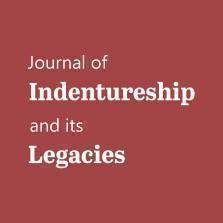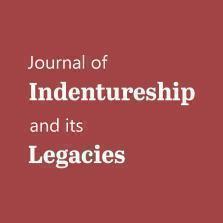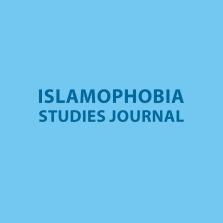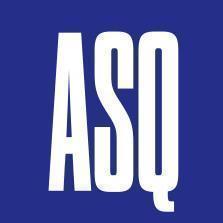'Culture Talks: Attenborough Arts Centre and the Institute for Advanced Studies join in dialogue with artist Sabrina Tirvengadum at the University of Leicester, 11 March 2025' - published in the Journal of #Indentureship and its Legacies on #ScienceOpen 🔓🗞️ https://www.scienceopen.com/hosted-document?doi=10.13169/jofstudindentleg.5.1.0004
'Redefining the hyphen: Transnational Indo-Caribbean identity through objects, memory and representation in conversation with Jacqui Ramrayka' - published in the Journal of #Indentureship and its Legacies on #ScienceOpen 🔓🗞️ https://www.scienceopen.com/hosted-document?doi=10.13169/jofstudindentleg.5.1.0003
#PlutoJournals #IndoCaribbean #CulturalMemory #DiasporaStudies
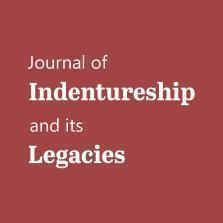
Redefining the hyphen: Transnational Indo-Caribbean identity through objects, memory and representation in conversation with Jacqui Ramrayka
<p xmlns:xsi="http://www.w3.org/2001/XMLSchema-instance" class="first" dir="auto" id="d1131374e101">This article explores the evolving transnational Indo-Caribbean diasporic identity through artistic expressions. I examine the work of British-Guyanese ceramicist, Jacqui Ramrayka, whose recent exhibition, ‘Redefining the Hyphen’, at the Victoria and Albert Museum in London, highlights the tensions between cultural preservation and identity formation within the Indo-Caribbean communities in London, New York and Toronto. Through a conversation with Ramrayka we interrogate how material culture, memory and migration shape diasporic consciousness. We unpack how Ramrayka’s clay and conversation workshops in these three cities present an innovative approach to capturing how people in different migratory contexts construct meaning and interrogate their cultural identity through interaction with objects. Additionally, this article contextualizes Indo-Caribbean identity within broader socio-political structures of the diasporic communities in the Global North. By engaging largely with second-generation communities and their negotiations of belonging, this conversation contributes to the discourse on transnationalism, diasporic identity and the role of artistic practices in navigating histories of indentureship and migration. Ultimately, it foregrounds the hybridity of Indo-Caribbean identity as an ongoing process of redefinition and reclamation. </p>
📕 New issue from the Journal of Indentureship and its Legacies!
A peer-reviewed scholarly journal by #PlutoJournals in partnership with the Ameena Gafoor Institute, publishing academic essays and creative responses on the multidisciplinary study of #Indentureship.
🔗 Read the Editors’ Introduction here: https://www.scienceopen.com/document?vid=7a461a96-4c63-4d06-83e4-d91e49427213
Explore the Collection on #ScienceOpen: https://www.scienceopen.com/collection/Pluto_IndentureshipLegacies
'The Islamist Labeling of Muslim CSOS: A Critical Examination of Stereotypes about Muslims and Islam in a Public Agency in Sweden' - an article in the Islamophobia Studies Journal (ISJ) from #PlutoJournals on #ScienceOpen:
📘🔗 https://www.scienceopen.com/hosted-document?doi=10.13169/islastudj.9.1.0006
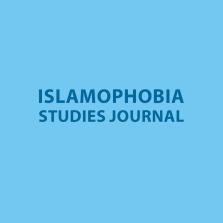
The Islamist Labeling of Muslim CSOS: A Critical Examination of Stereotypes about Muslims and Islam in a Public Agency in Sweden
<p xmlns:xsi="http://www.w3.org/2001/XMLSchema-instance" dir="auto" id="d17693300e121">Over the past decade, Muslim civil society organizations in Sweden have reported increasing stigmatization and labeling, adversely affecting their operations and the broader Muslim community. This stigmatization is linked to the term “Islamist,” which parliamentary motions, media articles, and reports have depicted as a threat to Swedish democracy and security, prompting calls for stringent actions from political figures. </p><p xmlns:xsi="http://www.w3.org/2001/XMLSchema-instance" dir="auto" id="d17693300e123">In a 2017 government consultation on Islamophobia, Muslim organizations noted growing difficulties in obtaining public sector support, attributing these challenges to negative narratives spurred by a controversial feasibility study by the Swedish Civil Contingencies Agency (MSB). The subsequent MSB project investigated Islamist information influence—defined as illegitimate and potentially harmful communication from a foreign power or its proxy. </p><p xmlns:xsi="http://www.w3.org/2001/XMLSchema-instance" dir="auto" id="d17693300e125">Our study examines how the concept of Islamism and the label “Islamist” are defined in this material and whether these constructions contribute to the stereotyping of Muslims. Through a textual thematic analysis, we identified three distinct definitions: religious extremism, Muslim identity, and Islamic activism. This flexible conceptualization allows the label Islamist to be broadly applied, categorizing diverse practicing or politically active Muslims and their allies as members of the same Islamist collective. </p><p xmlns:xsi="http://www.w3.org/2001/XMLSchema-instance" dir="auto" id="d17693300e127">Moreover, Islamists are depicted as a latently violent, alienated, monolithic community using manipulative communication strategies and aiming for undemocratic power takeovers—descriptions aligning with stereotypes about Islam and Muslims from classical and contemporary anti-Muslim narratives. The negative connotations and stereotypical content of this label are then imposed on the diverse group labeled as Islamists. </p><p xmlns:xsi="http://www.w3.org/2001/XMLSchema-instance" dir="auto" id="d17693300e129">In this way, the term acts as a rhetorical catalyst that has contributed to shaping social and government policies, reducing public space for Muslim organizing, and reinforcing anti-Muslim stereotypes. This ultimately affects social inclusion and violence prevention measures in Sweden. </p>
The Islamophobia Studies Journal (ISJ) is a peer-reviewed publication by #PlutoJournals that focuses on the critical analysis of #Islamophobia and its multiple manifestations in today’s world. 📘🌍
New issue on #ScienceOpen 🔎 https://www.scienceopen.com/hosted-document?doi=10.13169/islastudj.9.1.fm
🔔 New Publications from #PlutoJournals' Arab Studies Quarterly (ASQ)!
📚 Established in 1979 as a platform for academic research to counter anti-Arab propaganda veiled by academic jargon.
Explore articles about Arab culture, history, and institutions ✍️🔗 https://www.scienceopen.com/collection/Pluto_ASQ
'Evolving US Indo-Pacific Posture and Strategic Competition with China' - a #PlutoJournals Policy Perspectives article on #ScienceOpen:
🔓🔗 https://www.scienceopen.com/hosted-document?doi=10.13169/polipers.22.1.ra4
#IndoPacific #USForeignPolicy #StrategicCompetition #USChinaRelations
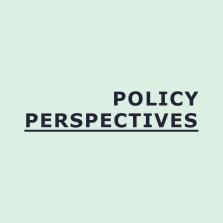
Evolving US Indo-Pacific Posture and Strategic Competition with China
<p xmlns:xsi="http://www.w3.org/2001/XMLSchema-instance" class="first" dir="auto" id="d1923588e91"> <i>The United States (US) under its Indo-Pacific policy explicitly aims to counter China’s political, economic and military maneuvers. China’s territorial claims compelled the US to revisit its Indo-Pacific policy and posture. In 2022, under former President Joe Biden, the US introduced its Indo-Pacific strategy that underscores the free, open and prosperous vision of the region. Viewing from the lens of Neo-Realism, the strategy hinted towards building alliances with partners, promoting transparent democratic values and norms in the region, mitigating any aggressive threat to the region and finally securing the US’ interests. Increased military spending, forming new partnerships and alliances—QUAD, AUKUS ANZUS—developing economic and technological infrastructures in the region are all part of the strategies which the US state department had issued in the IPS-2022. Similarly, its National Defense Strategy (NDS) implicitly mentions all those measures which are to be taken by the US to ensure stability in the region. The reelection of President Trump in the office in 2025 is anticipated to have significant impacts on the established international norms and values but the containment of China remains a core objective of the US. While on the other hand, in response to the IPS 2022, China has increased its defense spending, expanded regional economic projects, challenged US narratives and positions at the UNSC, and imposed reciprocal tariffs to maintain its influence. </i> <i>This paper aims to address the political, economic and military implications of the US Indo-Pacific policy for China including regional alliances, trade and investments, arms race, maritime security, tariffs and duties. It also re-evaluates IPS 2022 under Trump 2.0 administration and analyzes the US and China’s military capabilities deployed in the region. </i> </p>
'The Activation of the Title III of the Helms-Burton Act: The Making of a Policy' - an article in the International Journal of #CubanStudies on #ScienceOpen:
🔓🔗 https://www.scienceopen.com/hosted-document?doi=10.13169/intejcubastud.17.1.0003
#PlutoJournals #HelmsBurtonAct #PolicyMaking #CubaUSRelations #ForeignPolicy
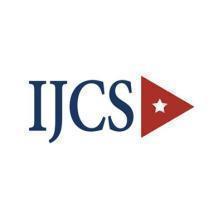
The Activation of the Title III of the Helms-Burton Act: The Making of a Policy
<p xmlns:xsi="http://www.w3.org/2001/XMLSchema-instance" class="first" dir="auto" id="d16460796e146">The article addresses the early implementation of Title III of the Helms-Burton Act. We discuss the decision to activate the Title from the perspective of policymaking. We examine the behaviour of the key variables: the domestic variables and contextual variables, within the framework created by the structural variables in the form of state policy. We then address the lawsuits filed under Title III between May 2019 and January 2023 to identify the companies sued and the state of the processes as of January 2023. The low figures, underwhelming results for the defendants and technical issues with the texts filed, along with targeted companies, show the contradiction between the statute and the constitutional framework. The research also shows how those contradictions affect the rulings of the courts. We found evidence of the political dimension of the suits and their developments, and how it adds to the obstacles for any potential future <i>rapprochement</i> between the US and Cuba. </p>
